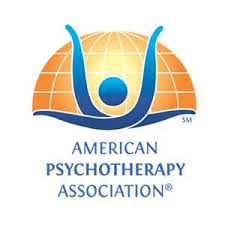Wrong Partner Selection = Unhappy Relationship
Most people are unaware that the attraction of prospective life partners is more complicated than random choices and chance meetings. Did you know that your decision to have a relationship with someone is heavily influenced by the quality of the nurturance you experienced as an infant and small child?
During these early stages of life infants and young children form conscious, as well as unconscious, impressions about how safe and secure the world is and how relationships work. The closeness and intimacy a prospective mate can offer reflect the quality of bonding and nurturance you have experienced during those formative years of life.
These patterns are deeply ingrained on conscious as well as unconscious levels. When they lead to unsatisfying or conflictual relationships, which they often do, assistance in the form of psychotherapy is helpful. The therapeutic environment provides you and your partner the opportunity to learn in the here and now. Your emotional and behavioral repetitions contribute to the difficulties that have surfaced. An examination of your interactions provide insight into how the patterns of discontent, longing or conflict impact upon your relationship.
The needs of infants and children are tremendous. Since no one person can meet all of these needs, it is reasonable to infer that all parents on one level or another are inadequate in varying degrees. We are all in good company! In marriages where bonding and nurturance characterize the relationship, the children tend to reflect this in their choices of partners. However, when these dynamics are compromised, the children generally grow into adults seeking partners who embody similar emotional dynamics. They are drawn to others who are incapable of deep emotional bonding and intimacy.
Although we have a vast amount of information needed to solve the problems of the world, we do not have a level of emotional maturity necessary to identify and implement the solutions. As young children grow, they become exposed to a variety of family environments through friendships, extended family, and other outside influences. The media provides vivid, unrealistic and often distorted examples of how relationships can or should function. A plethora of suggestions abound from self-help resources in bookstores, online, workshops and from well-meaning friends, relatives and co-workers. In spite of this the repetitions persist. Men and women alike often feel hopeless and depressed over the probability of satisfying relationships.
During adolescence, when hormones are raging, teenagers begin experimenting with boyfriends and girlfriends based on their internalized image of the ideal partner, as mediated by a distorted version of masculinity and femininity. Few of these “relationships” last long as teens learn what does and does not meet their unconscious attraction toward what is most familiar. Most people, finding themselves in less than satisfying relationships, will try to move on to another that more resembles what they think they want.
Ultimately, people tend to be attracted to what is familiar and thus more comfortable. Old patterns that were learned early have a strong unconscious pull. Emotional familiarity is so ingrained in people that they often run away from what they know will be good for them and opt for what they already know will not work. The pattern of wrong partner selection becomes an endless cycle many are unable to break. Divorce statistics bear this out; those who have gone through one divorce often remarry and divorce again and again.
Because divorce is so prevalent in our modern world, couples counseling is an invaluable specialty chosen by some professional counselors. Specialized training enables them to help people break free from old emotional patterns; gain awareness of emotional and behavioral repetition; and integrate new patterns into daily living. Rather than being locked into rejecting what will bring them the happiness, they can learn to seek people who can bring satisfaction, joy and fulfillment into their relationships. There is light at the end of the tunnel!
Dr. Maryann B Schaefer
Ph.D. – Counseling, Concentration in Psychology
NYS Licensed Mental Health Counselor
Fellow of American Psychotherapy Association
Phone: (516) 627-1145
Email: drmaryannschaefer@gmail.com
5 Travers Street Manhasset, NY 11030
Office Hours: By appointment only.




